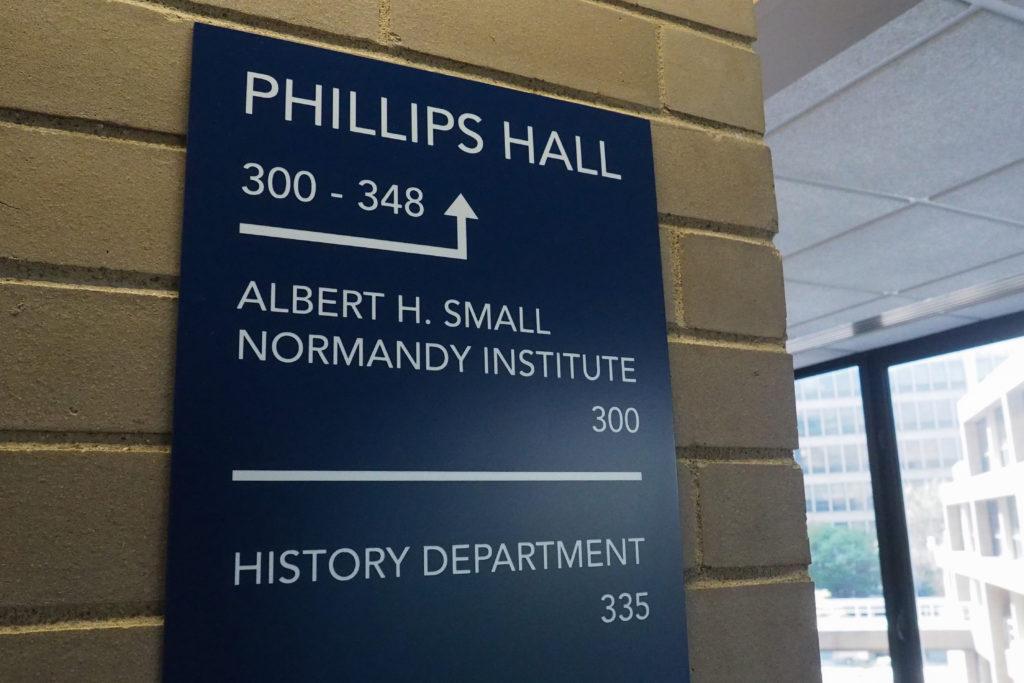A year after former professor Jessica Krug admitted she pretended to be Black in place of her white identity, the history department is now implementing recommendations from a temporary diversity, equity and inclusion committee assembled after the incident.
Faculty in the history department said the committee recommended plans to hire more faculty of color and create a standing committee to combat diversity, equity and inclusion issues within the department following Krug’s admission. Faculty and students in the department said the Krug incident highlighted the ongoing need to diversify the department’s faculty composition, courses and curricula, and the proposals could help guide the department in the right direction.
History faculty said at the time of Krug’s admission that they were “shocked” and “appalled” that Krug lied about her identity for her entire career. Students who attended Krug’s classes said she “betrayed” them for falsifying her identity, and the department must hire more faculty of color.
Sara Matthiesen, an assistant professor of history and the chair of the standing DEI committee that formed this academic year, said efforts to improve diversity, equity and inclusion within the department remain an “ongoing project.” She said the Krug incident helped bring these issues to the forefront of departmental reform and revealed the need for the standing committee.
“The Krug event exposed longstanding issues within the history department around a lack of diversity in terms of faculty, around the lack of diversity in curricular offerings and around the desire for a more diverse curriculum,” she said.
She said the temporary committee “redoubled” its efforts to diversify faculty composition in the history department, providing more attention to a diversity advocate serving on faculty search committees to recruit more scholars of color. Matthiesen, who was a member of the temporary committee last year, said history faculty underwent implicit bias training this spring and held meetings discussing “inclusive teaching” to make classrooms more welcoming to students.
She said the department also launched a speaker series on race, equality and inequality that will host two talks per semester from scholars in these three fields.
“Oftentimes departments will create committees ad hoc as needed, but we decided that this committee needed to exist in perpetuity to continue the work,” she said.
Matthiesen said the standing committee is currently developing its next steps after selecting three student representatives last week – juniors Josemanuel Tello and Allyson Bonhaus and doctoral student Naz Yucel. She said the other history faculty on the standing committee this fall include Abigail Agresta, Eric Schluessel and Hope Harrison.
Matthiesen said she hopes the standing committee will build on last year’s recommendations, especially considering that Krug’s incident was “extremely hurtful” for faculty and students in the department. She said the committee should also recognize how other identities, like gender and citizenship, may be marginalized in society and at a predominately white institution like GW.
“My hope for the [diversity, equity and inclusion] committee is that we build on the work that we started last year around racial marginalization and racism while also paying attention to other places, such as gender, class, sexuality, ability, where power can be wielded to exclude or marginalized people,” she said.
Dan Schwartz, the chair of the history department, said the standing committee will continue to implement the recommendations that last year’s committee outlined, like reworking syllabi to include issues of gender and ethnicity. He said the department also drafted a mission statement on its website last year outlining its values and the need to promote equity in the discipline in the aftermath of the Krug incident.
“It’s important not only to become a truly excellent department research-wise but also teaching,” Schwartz said. “Having people from different backgrounds teaching new courses to bring their own perspectives and being able to forge connections with students who look to them as examples of minorities, people of color, in the faculty is extremely important.”
Schwartz said the three students on the standing committee will serve in advisory roles, partaking in conversations with the committee on new courses and ways to diversify curricular offerings.
He said while graduate students served on the temporary body last academic year, history faculty decided to add undergraduate students to the standing committee based on feedback from a town hall that took place shortly after Krug’s admission.
“The idea of bringing undergraduates in is to let them know that they have a stake in this too, and that is a set of eyes and ears to get the undergraduate perspective,” Schwartz said.
Junior Harry Shaheen, a history and international affairs major, said teaching history requires a “holistic” approach because scholars tend to tokenize and caricature marginalized groups. Historians should understand the complexities and nuances of discussing and studying “non-Western” identities, he said.
Shaheen said department officials opened the committee to more student input this year to give students a voice in shaping the department’s future, like curricula building and faculty makeup.
“They’ve identified that diversity and inclusion in creating a democratic environment where people can express themselves freely, openly and where there can be a comfortable exchange of ideas is really important for all students regardless of their ethnicity, nationality, sexuality, gender, social class, economic backgrounds,” Shaheen said.
Sidney Grimsley, a junior minoring in history, said the history department should hire more diverse faculty in courses especially focused on regions like the Middle East and Asia to offer a perspective that is beyond “American-centric” as the next steps for greater diversity.
“There is a lot of diversity, but frequently, it’s taught by white men as a whole,” she said.
Grimsley, who took Krug’s World History course last fall, said she was surprised when she heard about the incident because she never thought that someone could fake their racial identity.
“I didn’t really expect her to be faking her entire ethnicity and race, but it was pretty surprising because I just didn’t know people or anyone will do that,” Grimsley said.








